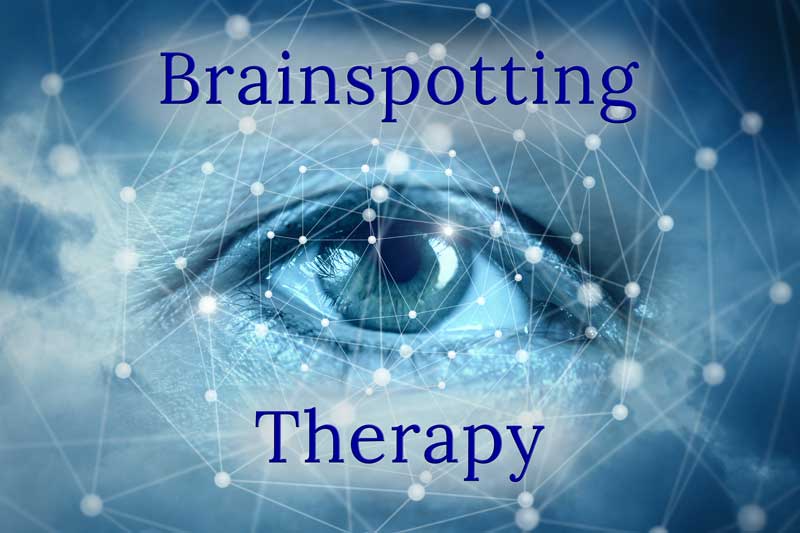Brainspotting Trauma and PTSD Therapy


313 West Liberty Street, Ste. 224
Lancaster, PA 17603

Brainspotting Therapy is one of the evidence-based modalities ACRS-licensed professionals use in Trauma and PTSD Counseling. We will help you determine if Brainspotting is the best therapy based on your unique needs. We'll give you the highest quality In-Person and Online Telehealth Brainspotting Therapy for Trauma and PTSD available in Pennsylvania.
Brainspotting Therapy is an excellent treatment modality for Trauma and PTSD. However, ACRS clinicians utilize several proven effective techniques.
Click here to discover all the Therapeutic Modalities and Mental Health Services ACRS offers in Pennsylvania and Florida.
ACRS Trauma-Informed experts will work with you to determine the best modality or combination of modalities you need to get better and reclaim your life after Trauma.
You are not alone; healing is possible, and your healing starts here.
Contact Us today!
What is Brainspotting Therapy?
Brainspotting is a powerful, innovative therapeutic approach that helps you process and heal from Trauma and PTSD. Developed by Dr. David Grand, Brainspotting Therapy focuses on the connection between the brain and the body, allowing clients to access and process deep-seated emotional pain and Trauma.
How Does Brainspotting Work?
Brainspotting utilizes the concept of "brain spots," which are specific eye positions that correlate with emotional and physical pain. By focusing on these spots, you can access and process traumatic memories and emotions in a safe and supportive environment.
- Eye Positioning: Your ACRS therapist guides you to find a brainspot that resonates with your Trauma.
- Processing: You are encouraged to explore your feelings and sensations while maintaining focus on the brainspot.
- Integration: Your therapy helps integrate the traumatic experience, leading to healing and resolution.
Benefits of Brainspotting Therapy
- Effective for Trauma and PTSD recovery
- Helps release emotional and physical tension
- Promotes self-awareness and emotional regulation
- Can be combined with other therapeutic modalities
- Non-invasive and gentle approach
Who Can Benefit from Brainspotting?
Brainspotting is suitable for people experiencing:
- Post-Traumatic Stress Disorder (PTSD);
- Emotional Trauma from past experiences;
- Anxiety and depression related to Trauma;
- Chronic pain and somatic symptoms; and
- Difficulty processing emotions
What to Expect in a Brainspotting Session
During a Brainspotting Therapy session, you can expect:
- A safe and supportive environment.
- Guidance from a trained ACRS therapist.
- Focus on your unique experiences and feelings.
- Time for reflection and integration after processing.
ACRS Offers You More Than Brainspotting Therapy
- Brainspotting Therapy: Brainspotting operates on the principle that where you look affects how you feel. The therapist helps clients identify "brainspots," which are eye positions linked to stored emotional experiences or Trauma in the brain. By maintaining focus on the brainspot while encouraging mindfulness and connection, the brain processes and releases unresolved emotions at a deep, neurobiological level. Brainspotting leverages the brain's natural ability to heal, mainly targeting the subcortical regions responsible for emotional and sensory processing. It is effective for a variety of challenges, including PTSD, anxiety, depression, chronic pain, and performance issues. The method is compassionate, client-centered, and adaptable, making it suitable for individuals of all ages. Brainspotting promotes long-lasting healing and personal growth by fostering self-awareness and emotional regulation.
- Cognitive Behavioral Therapy (CBT): CBT addresses fears, worries, or irrational thoughts fueling Anxiety, helping you develop coping strategies to manage symptoms of Generalized Anxiety Disorder (GAD), Panic Disorder, and Social Anxiety. CBT is a short-term, goal-oriented psychotherapy treatment that takes a hands-on, practical approach to problem-solving. Its core principle is that your thoughts, feelings, and behaviors are interconnected, and negative thoughts and behaviors can trap you in cycles of distress. CBT helps you identify and challenge these unhelpful thought patterns and develop healthier coping mechanisms. Through techniques like cognitive restructuring, behavioral experiments, and exposure therapy, CBT empowers you to change your thinking and behavior, leading to improved mood and reduced symptoms of various mental health conditions like Anxiety and Depression.
- Dialectical Behavior Therapy (DBT): DBT is a type of Cognitive Behavioral Therapy designed to help you manage intense emotions and improve relationships. It emphasizes the synthesis of acceptance and change, teaching individuals to accept their current emotional state while working towards positive change. DBT focuses on developing four core skill sets: Mindfulness, Distress Tolerance, Emotion Regulation, and Interpersonal Effectiveness. These skills help you navigate challenging situations, cope with overwhelming emotions, and build healthier relationships. DBT is particularly effective if you're struggling with borderline personality disorder, self-harm, and suicidal thoughts.
- Eye Movement Desensitization and Reprocessing (EMDR): EMDR is a psychotherapy approach used to treat Trauma and other distressing life experiences. It involves recalling disturbing memories while focusing on bilateral stimulation, such as eye movements, taps, or sounds. This process helps the brain reprocess the traumatic memories, reducing their emotional intensity and negative impact. EMDR is effective for PTSD, anxiety, phobias, and other mental health conditions. It aims to desensitize you to traumatic memories and replace negative beliefs with positive ones, fostering healing and emotional regulation.
- Prolonged Exposure Therapy (PE): Prolonged Exposure (PE) Therapy is a type of Cognitive Behavioral Therapy (CBT) used to treat PTSD and other Anxiety disorders. It involves gradually confronting the feared memories and situations you have avoided since the Trauma. Through repeated exposure in a safe and controlled environment, your Anxiety associated with these triggers diminishes over time. PE also involves processing your traumatic memory by talking about it in detail, which helps to reduce its emotional power. This combination of imaginal and in-vivo (real-life) exposure enables you to regain control and reduce the impact of Anxiety, PTSD, and Trauma on your life.
- Mindfulness Techniques: Help you develop present-moment awareness to manage overwhelming emotions and trauma-related symptoms. These techniques encourage nonjudgmental observation of thoughts, feelings, and bodily sensations, fostering a sense of safety and self-compassion.
- Narrative Therapy: Narrative therapy helps you through Trauma by focusing on stories you tell about your life. After something traumatic happens, it’s common to think of yourself negatively, like feeling weak, broken, or to blame. Narrative therapy encourages you to see the Trauma as something that happened to you, not something that defines who you are.
Working with an ACRS therapist, you explore your life story and look for moments of strength, courage, or things that show who you really are, beyond the Trauma. You can rewrite your story to focus on your resilience and the positive qualities that helped you survive.
This process enables you to take control of your life and see yourself more hopefully. Instead of being stuck in the painful parts of your past, narrative therapy helps you shape a future where healing and growth are possible.
- Psychoeducation: Helps you understand how Trauma affects your brain, body, emotions, and behavior. It empowers you by teaching that your reactions—like anxiety, flashbacks, or feeling "stuck"—are normal responses to abnormal events. Clients can view their symptoms as survival mechanisms rather than personal failures by learning about the fight, flight, freeze, or fawn responses.
Psychoeducation often includes information about the nervous system, triggers, and why it's challenging to "just move on" after experiencing Trauma. It also introduces strategies for self-regulation, such as grounding techniques and mindfulness, to help manage overwhelming emotions.
Understanding the science behind Trauma and your body's response can make you feel more empowered, gain clarity, and become an active participant in your healing journey, building a foundation for trust and further therapeutic work.
- Relaxation Techniques: Help ease heightened nervous system responses and promote a sense of safety.
- Deep breathing slows breathing patterns to activate the relaxation response, calming the body and mind.
- Progressive Muscle Relaxation (PMR) involves tensing and relaxing muscle groups to release physical tension and increase body awareness.
- Guided Imagery uses visualization of safe or soothing environments to create a mental escape from distress.
- Grounding techniques engage the five senses (e.g., noticing sounds, textures) to anchor you in the present and reduce dissociation. Additionally,
- Mindful Movement practices, such as gentle stretching or yoga, encourage safe reconnection with the body.
- Somatic Experiencing (SE): SE is a therapeutic approach that aids in healing from trauma by emphasizing the connection between the body and mind. After experiencing something frightening or overwhelming, your body may become stuck in "survival mode," causing feelings of tension, anxiety, or numbness. This state can persist even after the danger has passed.
In SE, a therapist guides you to pay attention to your bodily sensations, such as a racing heart, tight muscles, or feelings of shakiness. By gradually acknowledging these sensations in small steps, your body can begin to release some of the stress or "trapped energy" associated with the trauma. This process helps your body complete what it couldn't during the initial frightening experience.
Ultimately, Somatic Experiencing helps you feel calmer, more in control, and safer within your body. The method unfolds gently and at your own pace, assisting in the repair of trauma's effects.
Online Telehealth Brainspotting Therapy
Is Telehealth Brainspotting Therapy Effective?
- Research has shown that Brainspotting Therapy can be effective when delivered through Telehealth. Many clients report positive outcomes similar to In-Person sessions.
- The key components of Brainspotting can be effectively facilitated online.
Safety and Comfort
- Telehealth allows you to engage in therapy from the comfort of your own homes, which can enhance feelings of safety and security.
Accessibility
Telehealth makes Brainspotting Therapy for Trauma and PTSD more accessible to you if you have difficulty attending In-Person sessions due to geographical, physical, or logistical barriers.
Confidentiality and Security
Therapists must ensure that your Telehealth platform is secure and compliant with privacy regulations (such as HIPAA in the United States) to protect your confidentiality.
Therapist Training
- Therapists conducting your Brainspotting via Telehealth must be trained in both Brainspotting Therapy and Virtual Online Telehealth Technology. That's because therapists should be familiar with how to adapt the Brainspotting process to an online format.
Brainspotting Therapists at ACRS
Our counselors are trained in Trauma-Informed Care and have extensive experience helping individuals heal from traumatic experiences.
Chief Executive Officer

- Licensed Professional Counselor (LPC);
- Pa. Lic. PC006514
- Fl. Lic. TPMC1044
- Certified Traumatologist (CT)
- National Certified Counselor (NCC)
- Certified Clinical Mental Health Counselor (CCMHC)
- Certified Clinical Trauma Professional (CCTP)
- Certified in Emergency Crisis Response (CECR)
- Master of Arts (MA)
- 20+ years of clinical experience.
- Worked with clients across the lifespan.
Take the first step towards healing. Contact us to schedule a consultation with an ACRS Brainspotting Therapy for Trauma and PTSD expert or to learn more about Brainspotting Therapy.
Cheryl Wilson-Smith
Chief Executive Officer

- Licensed Professional Counselor (LPC);
- Pa. Lic. PC006514
- Fl. Lic. TPMC1044
- Certified Traumatologist (CT)
- National Certified Counselor (NCC)
- Certified Clinical Mental Health Counselor (CCMHC)
- Certified Clinical Trauma Professional (CCTP)
- Certified in Emergency Crisis Response (CECR)
- Master of Arts (MA)
- 20+ years of clinical experience.
- Worked with clients across the lifespan.
"I have over 20 years of experience in In-Person and Online Anxiety, Trauma, and PTSD Therapy. I guarantee that the Brainspotting Therapy ACRS provides to our clients is of the highest quality in Pennsylvania".

